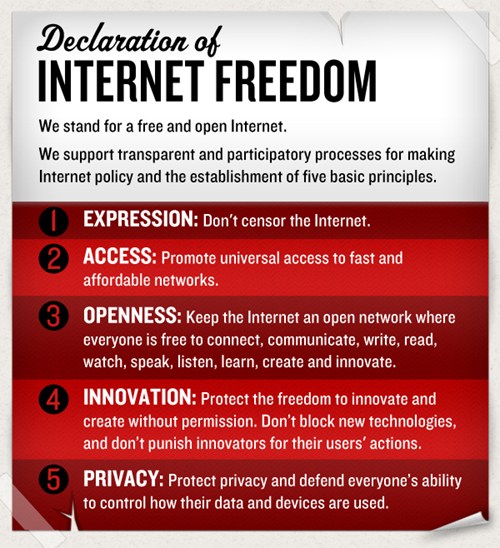Berkman Buzz: July 6, 2012
The Berkman Buzz is selected weekly from the posts of Berkman Center people and projects. The Berkman Center is hiring! We are now accepting applications for a number of technically-inclined leadership positions. Technology can't improve schools all on its own
From Justin Reich and Ryan Normandin blog post on Education Week, "Technology Is Not a Silver Bullet" Ethiopia tightens internet control measuresFrom Malavika Jagannathan's blog post for Herdict, "Ethiopian Internet control measures continue to garner concern"
Netizen Report: Netizens innovate to promote political and social change
From Rebecca MacKinnon's blog post, "Netizen Report: Journalism Edition" Derek Bambauer dissects the Commerce Clause in NFIB v. SebeliusFrom Derek Bambauer's post, "Parsing the Commerce Clause" Global network organizations support Declaration of Internet Freedom
From Samuel Klein's post, "Sudo Make Me an Internet"
Voters express sentiments on Twitter during electionsFrom J. Tadeo and Ayoola Ayabi's blog post, | ||||||||||
This Buzz was compiled by Royze Adolfo. To manage your subscription preferences, please click here. |





